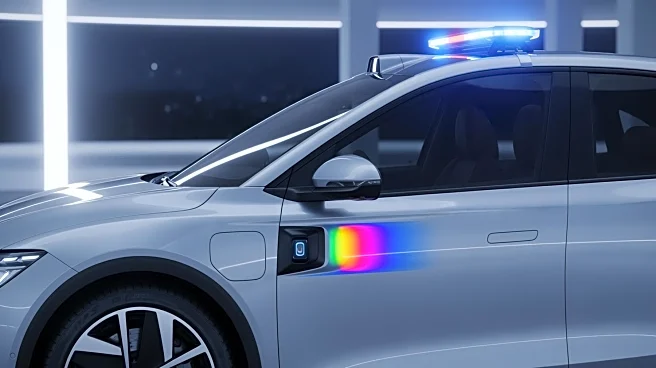What's Happening?
Geely has integrated a Raytron automotive thermal imaging camera into the LEVC L380 electric vehicle to improve night driving safety. This system, part of an infrared night vision solution, is designed to reduce night-time collisions by detecting pedestrians
and vehicles with high accuracy. The thermal imaging system offers a detection range of up to 300 meters, surpassing conventional headlights, and provides a horizontal coverage of approximately 10.5 meters. This allows for early identification of potential hazards, even in conditions of darkness, fog, and glare. The system achieves over 95% pedestrian detection and over 98% vehicle recognition accuracy.
Why It's Important?
The implementation of thermal imaging technology in vehicles represents a significant advancement in automotive safety. By enhancing a driver's ability to detect hazards at night, this technology could potentially reduce the high rate of traffic fatalities that occur during nighttime driving. The system's ability to function in adverse weather conditions further underscores its value in improving road safety. As thermal imaging technology becomes more widespread, it could transition from luxury vehicles to more mainstream models, making advanced safety features accessible to a broader range of consumers.
What's Next?
As the technology is adopted by more car manufacturers, there may be further developments to enhance its capabilities, such as integrating it with other advanced driver-assistance systems (ADAS) for comprehensive safety solutions. Regulatory bodies may also consider updating safety standards to include thermal imaging as a recommended or required feature in new vehicles. Additionally, consumer awareness and education on the benefits of such technology will be crucial in driving its adoption.
















